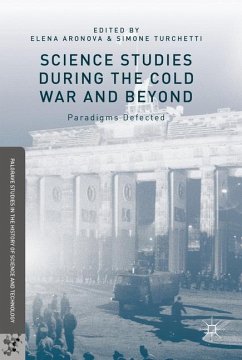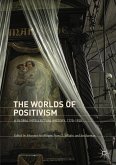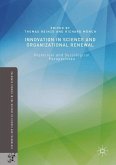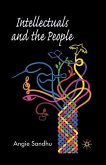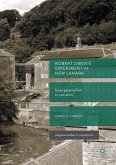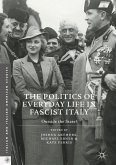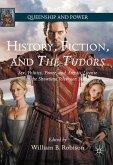This book examines the ways in which studies of science intertwined with Cold War politics, in both familiar and less familiar "battlefields" of the Cold War. Taken together, the essays highlight two primary roles for science studies as a new field of expertise institutionalized during the Cold War in different political regimes. Firstly, science studies played a political role in cultural Cold War in sustaining as well as destabilizing political ideologies in different political and national contexts. Secondly, it was an instrument of science policies in the early Cold War: the studies of science were promoted as the underpinning for the national policies framed with regard to both global geopolitics and local national priorities. As this book demonstrates, however, the wider we cast our net, extending our histories beyond the more researched developments in the Anglophone West, the more complex and ambivalent both the "science studies" and "the Cold War" become outside these more familiar spaces. The national stories collected in this book may appear incommensurable with what we know as science studies today, but these stories present a vantage point from which to pluralize some of the visions that were constitutive to the construction of "Cold War" as a juxtaposition of the liberal democracies in the "West" and the communist "East."
"This volume explores the Cold War politics of 'science studies' in less familiar historical contexts across the East-West and Global North-South settings of the Cold War. ... The book provides a much-needed plural description of the different local agendas which defined and shaped the boundaries of 'science studies' in the geopolitical and intellectual context of the Cold War." (Francesco Cassata, ARO - Annali Rezensionen Online, Issue (02), September, 2018)
"'Science Studies during the Cold War and Beyond' provides an occasion for self-reflection where the contours of institutional geography and intellectual hierarchies gain salience, personalities and intellectual identities interlock, andthe stories that one may hear at a conference dinner table turn into historiographical questions relevant beyond the confines of our community. This alone is a reason enough to make the volume a must-read for all STS scholars and to attract a broader audience." (Ksenia Tatarchenko, H-Soz-Kult, hsozkult.de, October, 2017)
"'Science Studies during the Cold War and Beyond' provides an occasion for self-reflection where the contours of institutional geography and intellectual hierarchies gain salience, personalities and intellectual identities interlock, andthe stories that one may hear at a conference dinner table turn into historiographical questions relevant beyond the confines of our community. This alone is a reason enough to make the volume a must-read for all STS scholars and to attract a broader audience." (Ksenia Tatarchenko, H-Soz-Kult, hsozkult.de, October, 2017)

